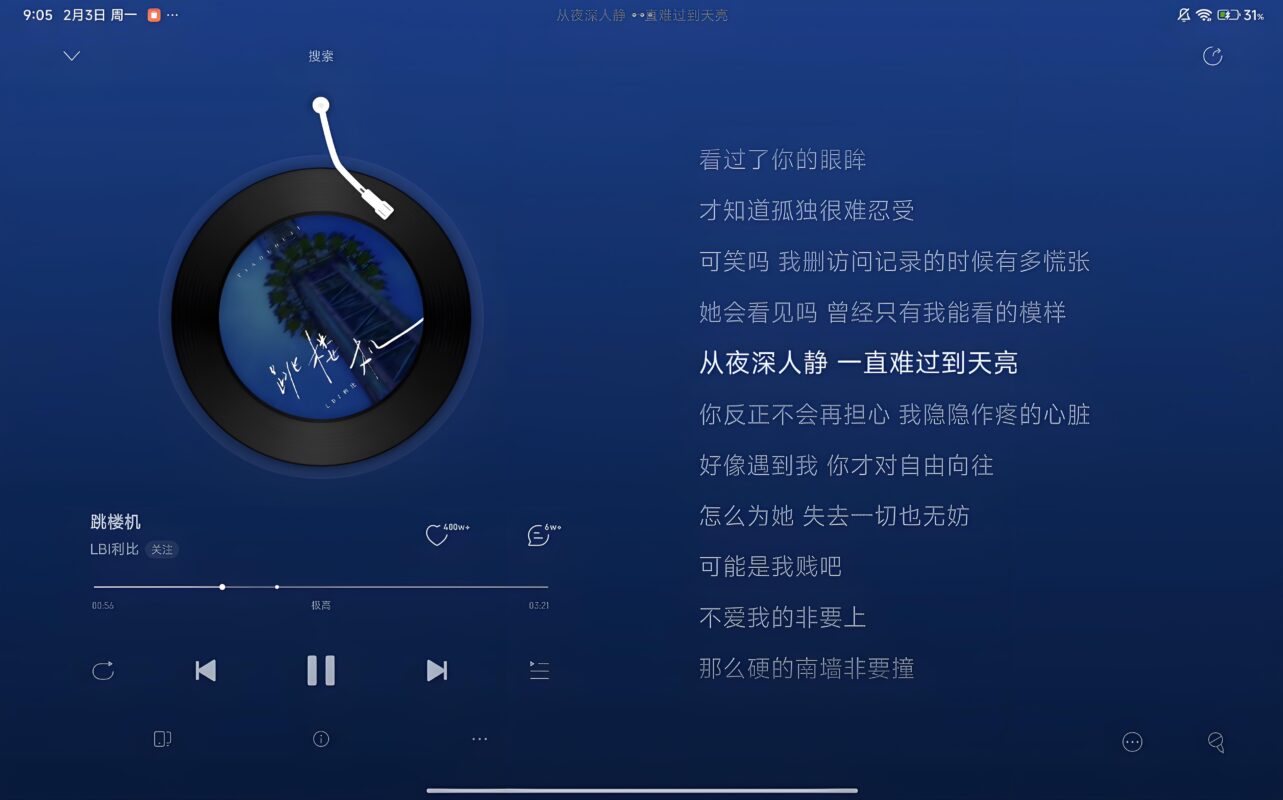The Unstoppable Data Tsunami
Quantifying a Cultural Reset
The 2025 Mandarin pop landscape is irrevocably defined by LBI Libi’s Fairground Ride (《跳楼机》), a sonic phenomenon achieving unprecedented commercial dominance. Within five months of its January release, the track amassed over 54 million Spotify streams, dominating charts across Singapore (#1), Malaysia (#1), Vietnam (#2), and Taiwan (#2) while entering Spotify’s Global Top 15(Source: Zhihu). Domestically, it became the default soundtrack for Chinese social media, generating 6 billion+ views under its hashtag on Douyin and securing dual 10 million+ collections on QQ Music and NetEase Cloud Music. Most staggering is its estimated 40 million RMB revenue ($5.5M USD) from streaming royalties, international licensing, synchronization fees (TV shows, ads), and cover version authorizations, setting a new benchmark for digital-era hits.
Anatomy of Virality – Mechanics of a Catchphrase Empire
Algorithm Alchemy and Youth Resonance
Fairground Ride’s virality stems from ruthless audience-targeting precision. Its lyrical blueprint—”Baby, our love feels like a rollercoaster/Sudden highs then crashing down”—combines relatable emotional volatility with ultra-shareable metaphors. The title itself weaponized curiosity, leveraging the visceral imagery of amusement park free-falls to ignite meme formats and challenge videos. Critically, its modular structure (15-second chorus loops, abrupt dynamic shifts) served TikTok’s fragmentary consumption, transforming it into the ultimate BGM for breakup montages, romantic fails, and absurdist skits. This wasn’t organic grassroots growth; it reflected a industrialized hit-making pipeline: marketing teams first identified “emotional friction points” for Gen-Z users, then commissioned producers to sonically weaponize them(Source: Sohu Entertainment).
Industry Disruption – Challenging the Sonic Hierarchy
The song’s success ignited fierce aesthetic civil war. Traditionalists decried its “lyrical impoverishment” (“Maybe I’m just trash” / “删访问记录” – “Deleting browser history”) and reliance on the ubiquitous 4536251 chord progression. Yet its cross-platform saturation forced institutional validation: it became a battle song on Sisters Who Make Waves 2025 (乘风2025) and was fiercely contested by Wang Yuan and Liu Yuning on The Treasured Voice 6 (天赐的声音6), ultimately reinterpreted by diva Zhang Liangying. This trajectory—from digital novelty to mainstream TV trophy—exposed a power shift: platform algorithms now rival A&R departments in determining what constitutes “hit material,” reducing gatekeeper control.
Section 4: Artist Transformation – LBI Libi’s Ascent from Ghostwriter to Headliner
For singer LBI Libi (利比), the song catalyzed a career quantum leap. Previously a “ghostwriter with a voice” – known for Summer in a Small Town (小城夏天) but lacking name recognition – Fairground Ride made him inescapable. His 20% royalty share (reportedly ¥8M+ RMB / $1.1M+) funded a transition from studio anonymity to mainstream festival bookings and variety show appearances. This mirrors a broader industry trend: viral hits now function as audition tapes for stardom, compressing years of brand-building into months. However, tensions linger—can an artist synonymous with a singular viral artifact cultivate lasting relevance, or remain trapped in the “one-hit algorithm prison“?
Section 5: The Globalization Paradox – A “Chinese Sound” Conquering ASEAN
Fairground Ride’s Southeast Asian breakthrough reveals export-ready sonic formulas. Its production—melodic trap beats fused with Mandarin-pop vocal melancholy—created a culturally frictionless product. Unlike idol-driven K-pop, it required no subtitles or fandom literacy; its emotional core (relationship turbulence) and TikTok-optimized hooks transcended language. Chinese platforms like Douyin and TikTok served as unstoppable distribution engines, bypassing traditional radio. Yet this success is double-edged: while proving Mandarin pop’s regional clout, it also reinforces perceptions of Chinese music as algorithmically engineered comfort food rather than artistic innovation.
Section 6: Cultural Symptom – Nostalgia, Nihilism, and the Post-Romantic Soundtrack
Beneath its candy-coated production, Fairground Ride channels a distinctly contemporary despair. Lines like “I’ll bleed out just so you remember loving me” reflect a performative martyrdom amplified by social media, while “deleting search histories” captures dating’s digital anxiety. Its dominance signals a departure from the poetic yearning of early 2000s Mandopop (e.g., Jay Chou’s Common Jasmine Orange / 《七里香》) toward ultra-literal, self-deprecating confessionals. Music critic debates rage: is this authentic Gen-Z emotional shorthand or artistic regression packaged as relatability?. Regardless, its resonance confirms that for a generation navigating algorithmic loneliness, “vulnerability as entertainment” has become the defining pop currency.

